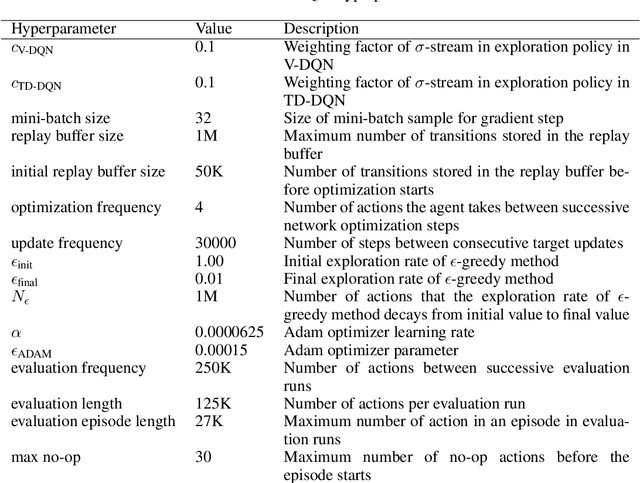Leveraging the Variance of Return Sequences for Exploration Policy
Paper and Code
Nov 17, 2020



This paper introduces a method for constructing an upper bound for exploration policy using either the weighted variance of return sequences or the weighted temporal difference (TD) error. We demonstrate that the variance of the return sequence for a specific state-action pair is an important information source that can be leveraged to guide exploration in reinforcement learning. The intuition is that fluctuation in the return sequence indicates greater uncertainty in the near future returns. This divergence occurs because of the cyclic nature of value-based reinforcement learning; the evolving value function begets policy improvements which in turn modify the value function. Although both variance and TD errors capture different aspects of this uncertainty, our analysis shows that both can be valuable to guide exploration. We propose a two-stream network architecture to estimate weighted variance/TD errors within DQN agents for our exploration method and show that it outperforms the baseline on a wide range of Atari games.
 Add to Chrome
Add to Chrome Add to Firefox
Add to Firefox Add to Edge
Add to Edge